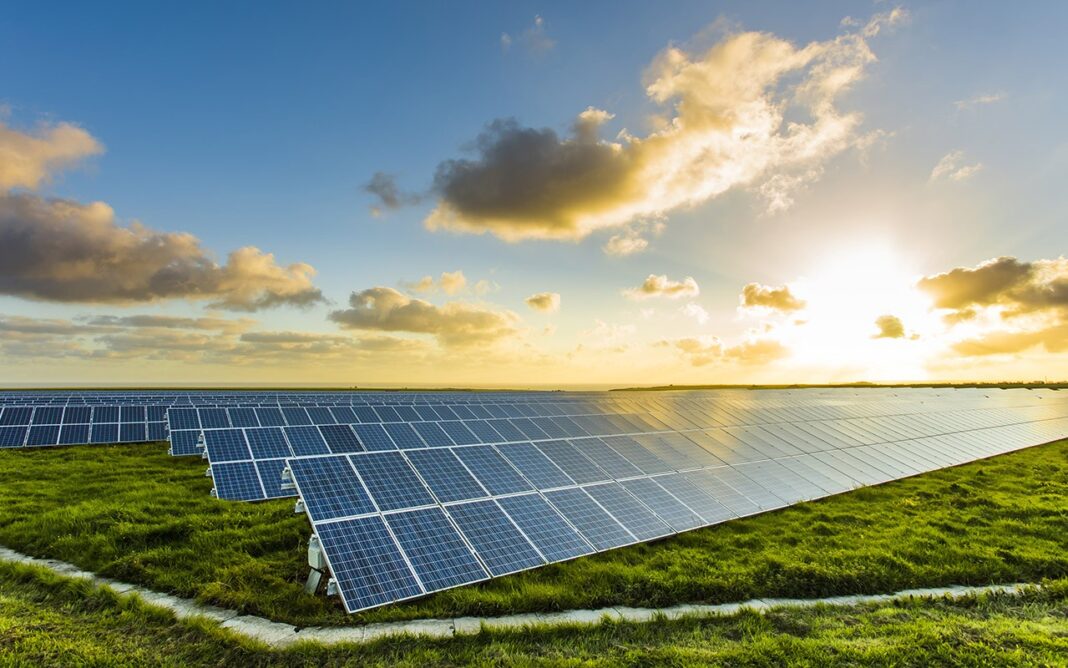By ‘Majirata Latela
The High Court of Lesotho this week declared as unconstitutional, unlawful and invalid, the supply agreement between the government of Lesotho and rogue German-Australian solar power company Frazer Solar GMBH, for the supply of solar energy to Lesotho.
The signatures that appeared on the supply agreement documents were those of former minister in the Prime Minister’s Office, Temeki Tšolo and that of Robert Frazer of Frazer Solar, without the authorisation and knowledge of the minister of finance and the minister of energy.
According to reports, a purportedly binding agreement was sealed in 2018 between Frazer Solar and Lesotho for the provision of up to 40 000 solar water heating systems, 20MW of solar photovoltaic capacity, one million LED lights and 350 000 solar lanterns nationwide.
The court also ordered that Tšolo’s decisions to appoint Frazer Solar GMBH as a sole supplier of goods and services and to enter into the supply agreement dated 27 September 2018 are reviewed and set aside. Tṧolo was the third respondent, along with Frazer Solar GMBH and Frazer Solar (PTY) LTD, while the applicant was the Attorney General.
The country was facing the loss of revenue from water and power sales to South Africa which could have seen its share of an undersea communications cable seized after it allegedly breached the terms of the contract with Frazer Solar GmbH.
Under a global enforcement order, following the award of 50 million euros in damages in an arbitration case in South Africa, Frazer said it had taken legal action to seize royalties that would be paid to Lesotho’s government by the Trans-Caledon Tunnel Authority SOC as well as payments for power from Eskom Holdings SOC Ltd.
It had also said it had Lesotho’s share in the Mauritius-based West Indian Ocean Cable Co. provisionally seized.
In this case Frazer Solar was awarded damages by South African arbitrator Vincent Maleka for Lesotho’s alleged breach of a deal suspiciously struck between the government and the German company involving supply of solar energy and power equipment to Lesotho over four years. The deal was allegedly signed in 2018.
Subsequently, Frazer Solar in April last year applied to the high court in Gauteng petitioning it to endorse the arbitration award and allow the company to garnish Lesotho revenue from the water royalties from South Africa in terms of the treaty signed in 1986.
That prompted for the then Prime Minister Moeketsi Majoro to request a reversal of the award to Frazer Solar as damages.
On November 4, lawyers representing the Lesotho government, noted that Frazer Solar had requested an urgent case management meeting “with His Lordship Mr Justice Matojane with a view of seeking a postponement of the Lesotho Stay Application, the TCTA Application and the SAG (South African Government) intervention application.”
The ENSafrica law firm’s Deon Lambert/Wandile Ndabambi wrote to SA high court Judge Matojane: “We will of course make ourselves available for an urgent case management meeting as Frazer Solar has requested should His Lordship convene one.”
The lawyers continued: “However, in an effort to and perhaps even avoid the need for a case management meeting, we record for the benefit of all parties that the Kingdom of Lesotho is willing to agree to Frazer’s request to postpone the matters set down for 10-12 November 2021.”
This was subject to all concerned parties agreeing to liaise with one another to find new dates for the hearing of the applications set down or November 10-12 with such dates suiting the parties.
The South African government also intervened in the matter. It argued in the application that granting Frazer Solar damages from Lesotho’s revenue due to it from the Lesotho Highlands Water Project (LHWP) would irreparably harm the diplomatic relations between the two countries.
The SA government also argued that the kingdom would retaliate by cutting water supplies to it in terms of the 1986 water treaty signed by the two countries.
Meanwhile, government’s energy experts have previously revealed that the government’s deal with Frazer Solar GmBH was never a good idea, looking at the M1.5 billion that Lesotho was to pay in 20 years.
Majoro also assembled a commission of inquiry into the ‘purported’ supply agreement between German company Frazer Solar GmBH and the government of Lesotho.
According to a government gazette published last year, the commission was tasked with probing events that led to the signing of the agreement of supply between the government and the services of notices in respect of the matter before arbitration and subsequent arbitration award.
The commission was to be led by High Court Judge Justice Molefi Makara, while its other members are former government minister Mohlabi Tsekoa and Advocate Sekake Malebanye.
The commission would investigate how Frazer Solar GmBH was introduced to the government of Lesotho including the persons in the country who were involved in the events that led to the signing; and enabled the company to lodge claims against the government.
Handing down its judgment on Tuesday this week, the High Court of Lesotho, among others, noted that Frazer Solar GMBH had conceded that the supply agreement breached the Procurement Regulations, the Public Financial Management and Accountability Act and the Constitution of Lesotho.
“The breaches are flagrant and multifarious. The contract has not been carried out. In the context of this case it would be hard to regard Frazer Solar GMBH as an innocent party, as it was fully aware that all these laws were not followed.
“In order to give their arrangement a semblance of legitimacy, Minister Tṧolo and Frazer Solar GMBH included a clause in the supply agreement in terms of which the government of Lesotho warrants that all the procurement laws were followed and all necessary parties who in terms of those procurement laws should have green-lighted the contract did so.
“This was all a sham because Minister Tšolo and Frazer Solar GMBH knew that these laws were not followed, as it correctly conceded before this court. In the result, the principle of legality and the need to maintain the rule of law demands that the supply agreement be declared void ab initio (having no legal effect from inception) and set aside together with the arbitration agreement.”
During the course of the trial Frazer Solar had engaged in an aggressive public relations exercise which saw it consistently discredit and demonise the government of Lesotho and Majoro for denying Basotho an opportunity to reap the benefits of the purported solar energy project.
Shortly after the High Court of Lesotho’s judgement and in typical Frazer Solar fashion, the shady company released yet another statement in which it proclaimed itself to be disagreeing with the court’s decision, which it claimed enabled the company and its legal team to re-start global enforcement proceedings against Lesotho.
“The High Court’s ruling is irrelevant, as we have a legal award from an independent arbitrator that is final, unappealable and globally enforceable.
“The judges have confirmed that the government of Lesotho chose the wrong method with which to proceed with Frazer Solar’s renewable energy project. We acted in good faith throughout by proceeding with the procurement rules provided by government officials.
“The High Court’s decision will only serve to accelerate our plans to launch fresh enforcement proceedings across multiple legal jurisdictions. The company will pursue assets owned by Lesotho in other jurisdictions around the world.”
Last week, the company announced that the Belgium court had recognised Frazer Solar GmbH’s €50 million arbitration award against Lesotho and had issued an order allowing the company to seize the Kingdom’s assets in Belgium, including the bank account of the Lesotho embassy in Brussels.
“We urge Prime Minister Matekane to leave the blunders and errors of Dr Majoro in the past and work with Frazer Solar to find an amicable solution. Failing that, we will continue pursuing the Kingdom of Lesotho in any international jurisdiction where it holds assets until we receive all monies owed to us.”
The government responded by issuing a statement of its own, reassuring the nation that it would do everything it can to protect Lesotho’s assets in Belgium and anywhere in the world.
‘Lesotho embassy in Belgium only got to know about the frozen accounts through the bank when they tried to transact on the 24th October 2022. Even now the Kingdom of Lesotho still has not been served with the Frazer Solar court process. An attempt was also made by Frazer Solar to attach Gem Diamonds assets in Brussels. That attempt failed.
“Upon discovering that the bank account had been frozen, the embassy immediately relayed the message to Lesotho and as we issue this statement, the matter is in the hands of our lawyers in Brussels who have now filed papers in court in order to protect the Kingdom’s interests.”









